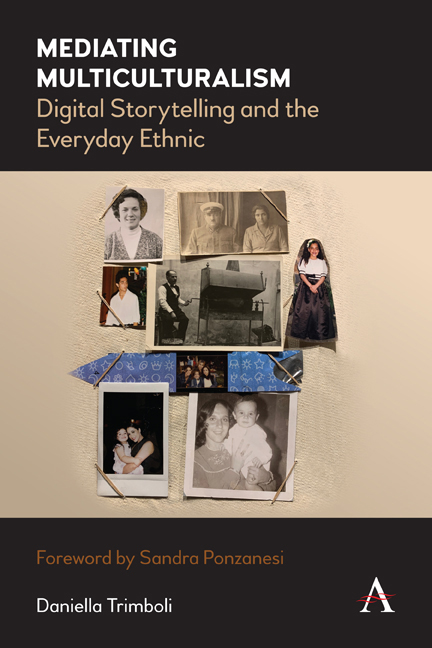Conclusion: Remediating Multiculturalism
Published online by Cambridge University Press: 21 August 2020
Summary
We have to think about the possibility of living in a vibrating reality.
– Hage (2017b)In this book I have attempted to reimagine twenty-first century conceptualisations of multiculturalism. Although I focused on Australian multiculturalism, the analysis was always situated within the broader framework of multicultural and ethnic studies, specifically within the context of Western liberal multiculturalism. I argued that more attention needs to be paid to the ways in which normative whiteness continues to perpetuate the construction of Othered bodies in Australia and other Anglo settler colonies, even in supposedly everyday or community-oriented contexts.
It is clear that while multiculturalism has been an important aspect of the Australian narrative for over 50 years, it has always been plagued by issues of white managerialism. More recently, it has become the subject of public and scholarly criticism, accused of being empty, irrelevant or even ‘dead’. It is also clear that contemporary multiculturalism has reached a conceptual crossroads – conflicted by a long-standing binary that has re-established itself in relation to the particularities of postmodern life. Like ethnic and cultural studies more broadly, multiculturalism is now charged with negotiating the effects of rapid globalisation, namely, increased mobility, interconnectedness and identity fragmentation; and the various reactionary responses to these effects which have mostly taken the forms of tightened border security, concentrated political uprisings and increased nationalism. By the turn of the century, the term ‘cultural diversity’ had largely overtaken multiculturalism, deployed by multiculturalism as an AoS so as to render race historical and ‘invisible’. Multiculturalism as a topic is as alive and necessary as ever, but currently operates as a mode of crisis – a crisis of contradiction.
There are two main approaches to this crisis. The first reclaims the positive aspects of multiculturalism, avidly petitioning for the asset of cultural diversity in contemporary society. This strategy has been highly influenced by the popular – and important – critiques that diasporic artists of the 1980s and 1990s enabled, as well as the broader work on identity recognition and liberalism. The second approach, broadly defined as critical multiculturalism, has focused on the complex and contradictory elements of multicultural life and mapped new forms of cultural interactions. Some strands of critical multiculturalism have recently employed Balibar's (1991) concept of neo-racism to argue that contemporary racism is based on cultural rather than biological differences.
- Type
- Chapter
- Information
- Mediating MulticulturalismDigital Storytelling and the Everyday Ethnic, pp. 189 - 196Publisher: Anthem PressPrint publication year: 2020



